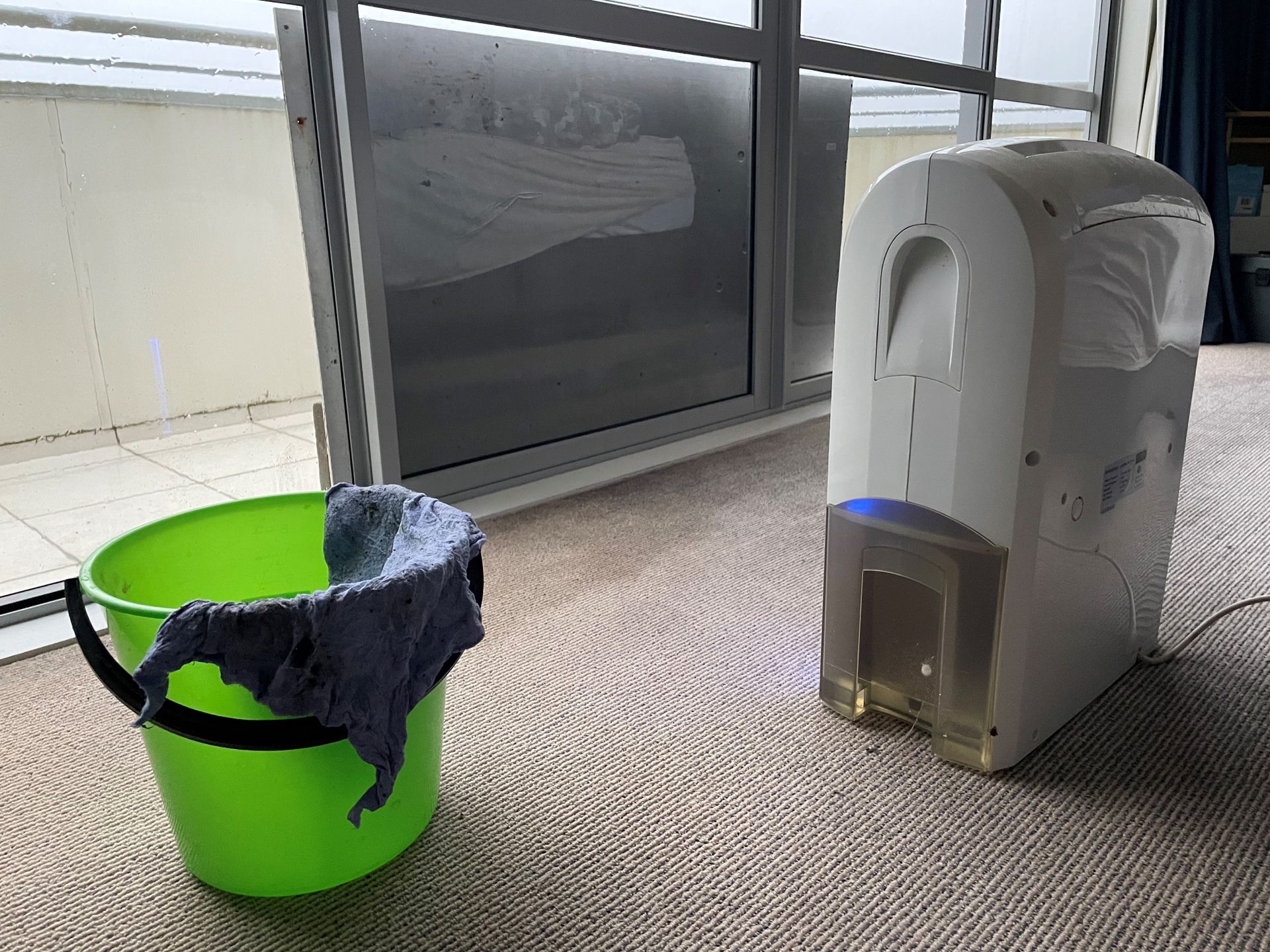Flood Lesson Learned - Don't Defer Maintenance
The Auckland flood in January 2023 highlighted to us that we deferred our property maintenance too long, and we’re probably not the only ones.

Our household was lucky. We weren’t displaced by floodwaters; we haven’t lost property to water damage, landslides or trees. But the Auckland flood in January 2023 did highlight to us, that we deferred our property maintenance too long, and we’re probably not the only ones. Nor is it limited to property and equipment in a business.
Don’t Wait for a Crisis
We had rain enter our upstairs bedroom through the sliding door tracks, and overflow onto our carpet on Friday afternoon. Hubby mopped up the overflow and improvised a screen in front of the sliding doors with panel boards, cinder blocks and a small wooden bench, but the channel kept on filling. I encouraged the kids to dance on towels to dry the carpet, while I tried to clear out the channel in the tracks. When we inspected the tracks on Saturday morning, we discovered the exit holes in the tracks were blocked, so we cleared them. I washed the windows a month ago but didn’t spend the extra 10 minutes to clear the exit holes. Taking a few minutes to do routine maintenance would have saved several hours of crisis management.
Maintenance is deferred or postponed, because there is a limited budget of time or energy, and it has been given a lower priority. Regular maintenance is essential and can save money in the long run.
Deferred Maintenance is Risky
Consider the risks of deferring maintenance:
• More costly repair when parts fail. Damage to surrounding parts. Urgent repair fees.
• Reduced efficiency from incorrect alignment, dirty filters, lack of lubrication.
• Safety hazards for operators and people nearby.
• Health risks, compliance issues.
• Assets wear out faster, requiring full replacement instead of parts. Lower resale value.
• Downtime from unexpected failures. Lower productivity. Failure to meet customer deadlines.
• Employee dissatisfaction and stress.
Preventive Maintenance Programme for Property, Plant and Equipment
Regularly schedule preventive maintenance for all property, plant and equipment. The more important it is, the more moving parts, the more corrosive the environment, the more often it needs to be maintained. Adding a maintenance work order in between client work orders at regular intervals, makes sure that your team sets the time aside. Train the team to understand the importance of keeping property, plant and equipment well maintained.
Make sure that you have the tools, parts, and consumables available before the maintenance work order comes up. Make sure you have the right people with skills to assist with the maintenance, a clear procedures manual, and health and safety conditions in place.
Preventive Maintenance Programme for People
When Stephen Covey talks about Sharpening the Saw in his book “7 Habits for Highly Effective People”, he’s not talking about metal saws, but people. To preserve your greatest asset – you – you need to find a balance in the physical, social/emotional, mental and spiritual areas of your life. Whether you are a sole trader or a leader in your business, you need to have a programme of self-renewal. If you didn’t get a good nights’ sleep for instance, how well did you make decisions and complete high-impact tasks the next day?
In late 2021, I broke a tooth, a molar. It was one that I had chipped during the first Auckland lockdown, and even when dental surgeries re-opened. I didn’t get it seen to. It was a costly, time-consuming repair that I could have avoided by attending to sooner. That was when I realised that I had been ignoring self-care too long. Each week for the next ten weeks I dealt with at least one self-care or life maintenance task that I had been ignoring, including my biennial mammogram. Even though no cancer was detected, it has highlighted that I need to check annually.
Eating healthily, regular exercise and movement, drinking lots of water, and taking time away from work and electronic devices can all help towards getting a better night’s sleep. Taking part in activities which bring you joy, like spending time with family, friends or your faith community, getting outdoors, engaging in a hobby, can boost your energy and your creativity. Consistency of effort is better than sporadic bursts. Schedule time in every week for self-care.
Conclusion
The risk of deferred maintenance is that if left too long, the repair bill will be much higher, or the property or equipment is irreparable and has to be replaced. It’s time to flip the priorities around and remind ourselves that preventive maintenance is essential, and should not be deferred.
We should also consider how important self-care is, for ourselves as leaders and for the people we lead. We are our greatest asset and we need to take care of ourselves so we can bring our best to every day.
- Serena Irving
Serena Irving is a director in JDW Chartered Accountants Limited, Ellerslie, Auckland. JDW is a professional team of qualified accountants, auditors, business consultants, tax advisors, trust and business valuation specialists.
An article like this, which is general in nature, is no substitute for specific accounting and tax advice. If you want more information about the issues in this article, please contact your adviser or the author.




